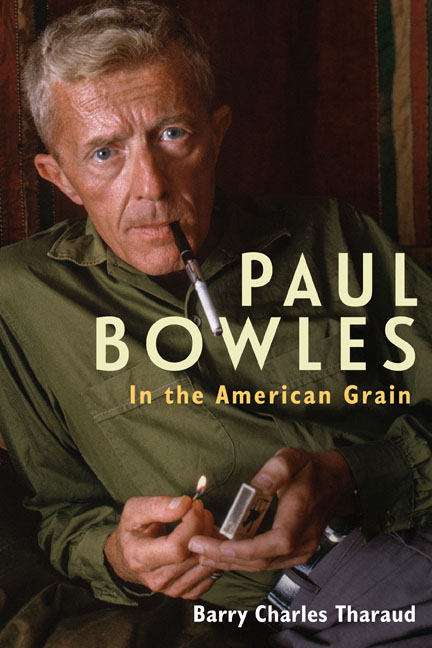Book contents
- Frontmatter
- Contents
- Preface
- Acknowledgments
- Abbreviations
- Introduction: Paul Bowles as a Canonical Writer
- 1 Paul Bowles on Intercultural Understanding: Too Far from Home
- 2 The Discovery of Existence: Without Stopping
- 3 Emersonian Shadows
- 4 Culture and Existence in Bowles’ Short Fiction
- 5 Gide and Bowles in North Africa: The Sheltering Sky
- 6 Language, Noise, Silence: Self and Society in Let It Come Down
- 7 The Spider’s House: The Social Construction of Reality
- 8 Existence and Imagination: Up Above the World
- 9 The Letters: In Touch
- Conclusion
- Bibliography
- Index
4 - Culture and Existence in Bowles’ Short Fiction
Published online by Cambridge University Press: 24 November 2020
- Frontmatter
- Contents
- Preface
- Acknowledgments
- Abbreviations
- Introduction: Paul Bowles as a Canonical Writer
- 1 Paul Bowles on Intercultural Understanding: Too Far from Home
- 2 The Discovery of Existence: Without Stopping
- 3 Emersonian Shadows
- 4 Culture and Existence in Bowles’ Short Fiction
- 5 Gide and Bowles in North Africa: The Sheltering Sky
- 6 Language, Noise, Silence: Self and Society in Let It Come Down
- 7 The Spider’s House: The Social Construction of Reality
- 8 Existence and Imagination: Up Above the World
- 9 The Letters: In Touch
- Conclusion
- Bibliography
- Index
Summary
IN CHAPTER 1 WE SAW how Bowles in his late novella, Too Far from Home, contrasts different modes of perception and existence between the American siblings, Tom and Anita, in the Niger River Valley of the South Sahara. Tom, through his art, works to experience a foreign culture without injecting into it his own culturally conditioned awareness, while his sister Anita consciously insists on viewing the foreign culture through the culturally conditioned lens of her New York intelligentsia background in order to reject such experience. And in chapter 3, we saw how Bowles in his early short story, “A Distant Episode,” contrasts two radically different modes of perception and existence in a linguistics professor in the Algerian Sahara, where he undergoes a traumatic experience that transforms him from a narrow, completely culturally conditioned academic who is largely incapable of experiencing existence in the passing moment, to a subhuman being who has lost all cultural bearings and who exists in a meaningless flow of pure existence. In these two works we can see Bowles’ major concern, both early and late, with the way culturally conditioned perception and awareness determine and limit the quality of our existence. This literary theme places Bowles in the antinomian tradition of Emerson and his existential followers in both the United States and Europe, and places him securely “in the American grain.” A traditional way to examine the conflict between existence and consciousness is through the traditional terms of “nature versus culture” or “the individual versus society.” In the present chapter we will examine how various cultural institutions such as religion, class, family, socioeconomic culture, and sexual mores mold individuals to see life in a certain way, and in the process blind them to alternative perspectives that might enable greater individual fulfillment.
By focusing on the ways in which culture forms and distorts individual existence, Bowles is following in the path of Emersonian transcendentalism, which seeks to free individuals from distorted perceptions created by society and culture so that they can experience their own individuality. Emerson often focuses on both the quality of existence—“Life is an Ecstasy” (The Conduct of Life, “Illusions,” 1116)—as well as the matrix of existence—“What we are, that only can we see” (Nature, “Prospects,” 48).
- Type
- Chapter
- Information
- Paul BowlesIn the American Grain, pp. 69 - 98Publisher: Boydell & BrewerPrint publication year: 2020



